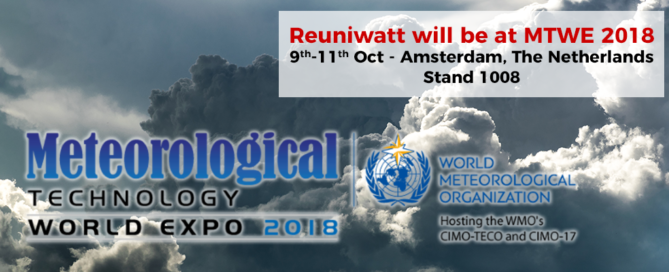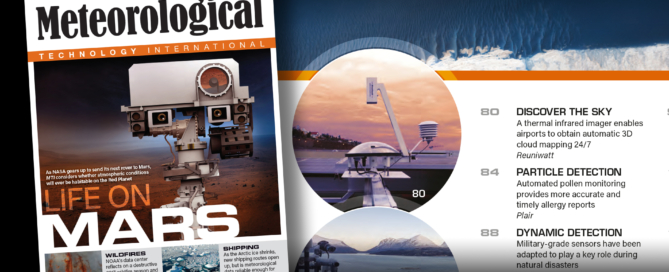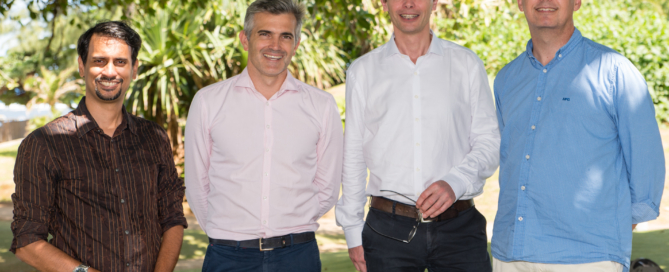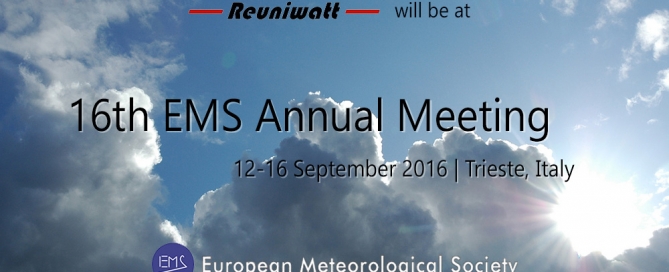Meet us at EMS 2022
This september, Reuniwatt's team was present at the EMS Annual Meeting in Bonn, Germany. Our latest publications Our R&D team is proud to present some posters from our ongoing research projects: Assessment of direct normal irradiance assessment from cloud optical depth of geostationary meteorological satellites in Germany Mon, 05 Sep, 14:00–15:30 | b-IT poster area | P11 as well as three new publications from
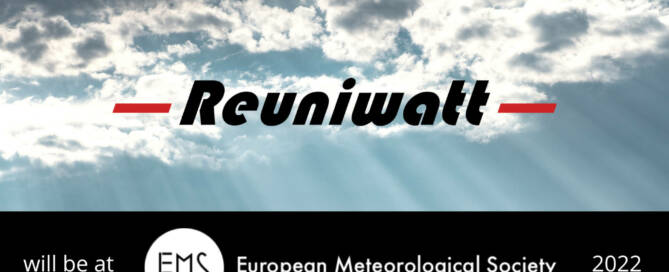
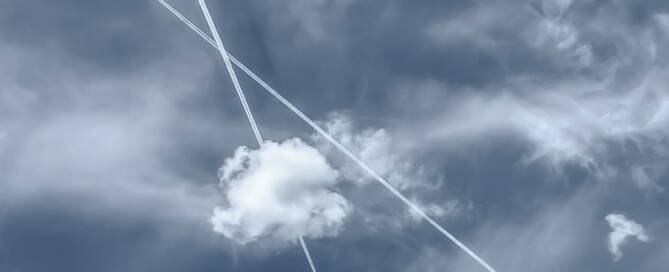
![[Webinar Series] Volcanic eruptions and aerosols [Webinar Series] Volcanic eruptions and aerosols - Header HungaTonga](https://reuniwatt.com/en/wp-content/uploads/sites/3/2022/03/Header_HungaTonga-669x272.png)
